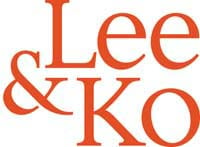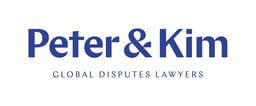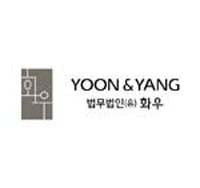
South Korea


Ashurst

Bae, Kim & Lee LLC

Baker McKenzie & KL Partners Joint Venture Law Firm

Barun Law

Choi & Kim

Cleary Gottlieb Steen & Hamilton

Cleary Gottlieb Steen & Hamilton LLP

Clifford Chance

Dentons Lee

DLA Piper

DR & AJU LLC

Drew & Napier LLC

Jipyong LLC

K&L Gates Straits Law LLC

Kim & Chang

Kwon & Co

LAB PARTNERS

Latham & Watkins LLP

Lee & Ko

Lee International IP & Law

Linklaters

Milbank

Peter & Kim

Ropes & Gray LLP

Sechang & Co.

Shin & Kim

Simpson Thacher & Bartlett Hong Kong

Stephenson Harwood

Watson Farley & Williams LLP

White & Case LLP

Yoon & Lee

Yoon & Yang LLC

Yulchon
Firms in the Spotlight

DR & AJU LLC
Founded in 2009 through the merger of Daeryook and AJU, D&A LLC has evolved into one of South Korea's leading law firms through the continuous strengthening of its capabilities and expansion of se

Shin & Kim
Now in its 40th year, Shin & Kim is one of the largest and highly regarded law firms in Korea. The breadth and depth of experience offered by over 700 professionals (including Korean and foreign a
News & Developments
ViewPress Releases
Yoon & Yang Strengthens Cross-Border Corporate Advisory Capabilities with the Addition of Three Seasoned Practitioners
- Sukjin(SJ) Lim, Yeon Jeong Chae, and Minjung Jekarl Join to Enhance
Global Investment and M&A Expertise -
January 21, 2026
Yoon & Yang LLC (Yoon & Yang) announced that it has strengthened its cross-border corporate advisory practice with the addition of Sukjin(SJ) Lim, Senior Foreign Attorney, Yeon Jeong Chae, Partner, and Minjung Jekarl, Senior Foreign Attorney. The three recently joined Yoon & Yang to further enhance the firm’s capabilities in foreign direct investment (FDI) and outbound investment by Korean companies, as well as complex cross-border M&A transactions.
The strategic hires reflect Yoon & Yang’s continued commitment to proactively respond to the growing demand for sophisticated cross-border legal services driven by evolving global investment environments and increasingly complex transaction structures. With the addition of these seasoned legal practitioners, Yoon & Yang intends to further strengthen its ability to provide seamless, one-stop cross-border corporate advisory services to both domestic and international clients.
Notably, the three lawyers moved from Kim Chang Lee as a team, having worked together for many years at the same firm advising on cross-border corporate matters and transactions. Their collective experience in leading global and multi-jurisdictional transactions is expected to generate immediate synergy within Yoon & Yang’s corporate advisory platform.
Senior Foreign Attorney Sukjin(SJ) Lim: A Veteran Cross-Border Investment Advisor with Global Law Firm Experience
Sukjin(SJ) Lim is admitted to the New York and New Jersey Bars (1997), and previously worked at leading law firms in New York, Seoul and Hong Kong. With nearly 28 years of experience, he has advised extensively on inbound investment into Korea, outbound investment by Korean companies, cross-border M&A, joint venture projects between domestic and foreign companies and other types of corporate transactions.
At leading Korean and international law firms, including Clifford Chance’s Hong Kong office, he developed advisory capabilities aligned with global best practices. Mr. Lim has advised a broad spectrum of clients ranging from multinational corporations to strategic investors and financial investors, as well as tech start-up companies, and in terms of financing, his expertise spans early-stage capital raising, seed rounds, Series A–E financings, and mezzanine financing structures. In addition, with his experience in overseas markets, he has worked with various companies from Korea to make investments, go through flip/stock-swap transactions and set up joint venture companies overseas, such as in the United States, Japan, Hong Kong, India, Vietnam, Singapore, Indonesia, UAE and Saudi Arabia. He has been recognized by his clients as providing not only legal advice but also practical advice, providing possible options where feasible, which has proved to add value for his clients. His approach at the negotiation tables is cordial but convincing, and oftentimes tries to find an amicable win-win solution. He is known to be a deal-closer, and his approach has helped the clients with post-investment integration. Mr. Lim’s industry expertise spans from IT/tech and semiconductors to automotive and auto parts, as well as games, contents and entertainment, and music.
At Yoon & Yang, Mr. Lim is expected to play a key role in cross-border corporate advisory work, while also collaborating closely with the firm’s labor & employment, antitrust & competition, regulatory/Financial Services Commission, tax, IT, gaming & entertainment, automotive, and international dispute resolution teams, particularly for overseas clients.
Partner Yeon Jeong Chae: A Cross-Border Deal Specialist with a Focus on IT/Tech, Automotive, Gaming and Entertainment
Yeon Jeong Chae, brings over 20 years of experience advising on cross-border transactions, including overseas investments by Korean companies, inbound acquisitions and investments by foreign entities, and the establishment of joint ventures between domestic and international companies.
Her advisory experience spans a wide range of corporate legal issues, including investment structuring, data protection, foreign exchange regulations, and labor and employment matters, serving clients from multinational corporations and mid-sized companies to tech/start-ups. Ms. Chae is particularly well regarded for her deep understanding of regulatory frameworks in the IT/tech, AI, automotive, semiconductor, gaming and entertainment sectors, and she has been engaged in various cross-border corporate transactions, notably stock-swap transactions between Korea and the United States, Hong Kong and Singapore, drawing on her extensive experience in regulatory matters involving the Bank of Korea and foreign exchange banks in Korea. She has advised on numerous high-profile transactions, including Tencent’s equity investments in Korean gaming and entertainment companies and foreign funds’ investments in Korean IT/tech, software and game developers. Lastly, Ms. Chae has extensive expertise in labor matters and has worked for almost two decades on issues involving Korean domestic employees of foreign-invested companies in Korea.
At Yoon & Yang, Ms. Chae will focus on outbound and inbound investment and general corporate advisory matters, while delivering tailored legal services to clients in the IT/tech, software, automotive, gaming and entertainment industries.
Senior Foreign Attorney Minjung Jekarl: A Multinational Cross-Border Transactions Expert
Minjung Jekarl is admitted to the New York Bar (2007) and has extensive experience in advising domestic and international clients on M&A, joint ventures, and foreign direct investment. Ms. Jekarl has been deeply involved in transaction structuring, regulatory reviews, and corporate advisory work for investors and target companies across the Americas, China and other parts of Asia, and in the past several years, she has been closely involved in making investments and leading joint venture projects in the United Arab Emirates and Saudi Arabia.
With substantial experience in representing multinational clients in M&A, financing, and equity investment transactions, Ms. Jekarl brings a strong multi-jurisdictional perspective to Yoon & Yang’s practice. At the firm, she will focus on cross-border M&A, joint ventures, offshore financing, and inbound and outbound investment, particularly in the areas of IT/tech, cloud, gaming, and entertainment.
Yoon & Yang Builds a One-Stop Global Corporate Advisory Platform
By adding seasoned legal practitioners capable of independently designing and leading global transaction structures, Yoon & Yang has completed a corporate advisory framework that covers the full spectrum of foreign investment, outbound investment, and cross-border M&A from deal structuring to execution on a fully integrated basis.
Managing Partner Myung Soo Lee commented, “as demand for global investment and cross-border transactions continues to grow rapidly, the addition of these three highly experienced legal practitioners marks an important milestone in strengthening Yoon & Yang’s corporate advisory capabilities. We will continue to enhance our platform through strategic talent acquisition aligned with market and client needs, enabling us to deliver differentiated and high-quality legal services.”
For more information, please contact:
Do Hee Kim
Marketing/Communications Manager
Yoon & Yang LLC
Tel: (82-2) 6003-7269
Email: [email protected]
Yoon & Yang LLC - January 21 2026
Press Releases
Introduction of Directors’ Duty to Protect Shareholders’ Interests and Other Changes to Regulatory Framework on Corporate Governance
The National Assembly passed the first amendment to the Korean Commercial Code (the “KCC”), expanding the fiduciary duties of directors to include the protection of shareholders’ interests (the “First KCC Amendment”) on July 3, 2025. The First KCC Amendment was thereafter promulgated and came into effect on July 22, 2025, following deliberation by the State Council and receipt of presidential approval. Subsequently, the National Assembly passed the second proposed amendment to the KCC, which mandates cumulative voting and expands the separate election of audit committee members of large listed companies (the “Second KCC Amendment”), on August 25, 2025, and it was approved by the State Council on September 2, 2025 and promulgated on September 9, 2025.
Since the new government came into power, the market has shown considerable interest in the new administration’s policies aimed at enhancing corporate governance and systems related to corporate law, as well as amendments to the KCC, including the introduction of directors’ duties to protect shareholders’ interests as a starting point to implement such policies. The Democratic Party of Korea (the “DPK”) engaged in extensive discussions regarding its plans to (i) expand the fiduciary duties of directors to include the protection of shareholders’ interests, (ii) obligate listed companies to hold general meetings of shareholders virtually, (iii) adopt a system of independent directors, (iv) expand the separate election of audit committee members, and (v) mandate cumulative voting. Shortly after the start of the new administration, the DPK submitted the First KCC Amendment to address points (i), (ii) and (iii) mentioned above. Following the submission of the agenda by the ruling party, the Second KCC Amendment, which mandates cumulative voting and expands the separate election of audit committee members of large listed companies, underwent considerable deliberation in the plenary session of the National Assembly, including a filibuster by the opposition party, before it was finally passed on August 25, 2025. It was approved by the State Council on September 2, 2025 and promulgated on September 9, 2025.
Please click on the following link to view the main provisions of the Second KCC Amendment and their enforcement dates (Link).
Authors
Ji Pyoung KIM (View Profile)
Jeremiah N. PHILLIPS (View Profile)
Min Young HAHN (View Profile)
https://www.kimchang.com/en/insights/detail.kc?sch_section=4&idx=33097
Kim & Chang - December 17 2025
Antitrust and competition
Key Antitrust and Competition Policy Directions of New Administration
On June 4, 2025, President Lee Jae-Myung commenced his five-year term as the 21st President of the Republic of Korea. During his inaugural speech, President Lee emphasized his commitment to building a market economy ecosystem based on fairness and shared prosperity.
He stated that “[f]air growth based on shared opportunities and outcomes will open doors to a better world,” and that Korea must “move toward a fair society of balanced development and fair growth strategies” to “create an industrial ecosystem where companies of all sizes collaborate organically, and transition into a fair society free of privileged status or preferential treatment.” In line with these goals, the new administration is set to implement significant political and economic policy reforms that will impact businesses operating in Korea.
The President’s National Policy Planning Committee unveiled the new administration’s five-year roadmap on August 13, and the administration’s 123 national policy tasks were officially approved at a Cabinet meeting on September 16. These policies highlight “establishing a fair economy of cooperation and shared prosperity” as a core strategy to achieve the administration’s key objectives, for which specific tasks include (i) creating a fair market order, (ii) ensuring consumer sovereignty and eradicating unfair practices, and (iii) combating technology theft and creating a business environment of shared prosperity.
Creation of Fair Market Order
The new administration has outlined the following specific initiatives to build a fair market order.
Create a fair platform ecosystem: The new administration plans to establish an online platform regulatory system to protect consumers and businesses and eradicate unfair practices by (i) enhancing transparency throughout the transaction process – covering contract formation, modifications and execution, (ii) reducing the burden of fees on vendors and strengthening their bargaining power through the right to form a collective, and (iii) preventing misappropriation of transaction proceeds by requiring compliance with settlement deadlines and separate management of payments.
Strengthen protections for the economically underprivileged: Efforts will focus on boosting the bargaining power of small and medium-sized enterprises (“SMEs”) and small business owners against stronger counterparts – such as franchisors and prime contractors – and facilitating the opening and closing of businesses through measures including (i) granting franchisees the right to collective bargaining and enabling distributors, suppliers and vendors to form collectives, and (ii) implementing a franchise disclosure system to provide timely information to prospective franchisees and grant franchisees termination rights to exit agreements without excessive penalties when business conditions deteriorate due to unforeseen changes in commercial environments.
Strengthen monitoring of unfair internal transactions: The new administration plans to tighten monitoring of unfair internal transactions by (i) discouraging overlapping listings within the same business group under the holding company system, (ii) preventing circumvention of regulations on inter-affiliate transactions through treasury shares that allow the owner family to make undue profits, and (iii) adjusting administrative fines that are proportionate to the unfair gains to ensure strict enforcement.
Promote a fair procurement market: To ensure fairness in public procurement, the administration plans to introduce ex officio investigations and administrative fines for refusal to cooperate or non-compliance with the investigations, thereby strengthening oversight of unfair acts by institutions involved in public procurement.
Ensure Consumer Sovereignty and Eradicate Unfair Practices
The following implementation tasks aim to protect consumer rights and interests, promptly prevent unfair and illegal acts, and expand effective remedies for damages in areas closely related to daily life.
Strengthen consumers’ rights and interests across all age groups: The new administration plans to enhance consumer protection by: (i) requiring disclosure of wedding service prices (for young adults), (ii) mandating gyms to disclose whether they have guarantee insurance for middle-aged consumers, and (iii) improving the financial stability of funeral service providers to protect the elderly.
Expand civil remedies and enforcement: To better deter unfair civil practices and improve damage relief, the administration plans to (i) broaden the scope of unfair practices for which the private sector can file claims directly in court – without having to go through the Korea Fair Trade Commission (the “KFTC”) – extending beyond the Monopoly Regulation and Fair Trade Act (the “MRFTA”) to include unfair practices under the Fair Subcontracting Transactions Act, Fair Franchise Transactions Act, and Fair Distribution Transactions Act, (ii) establish a fund to compensate consumers and SMEs harmed by unfair trade practices and support their rights, (iii) eliminate the lawsuit permit system and introduce the right to seek preventive injunctions to encourage consumer class actions, and (iv) create a system where courts can order the opposing party and the KFTC to submit evidence related to damages.
Strengthen the dispute mediation and execution system: The new administration plans to pursue the enactment of the Fair Trade Dispute Mediation Act, which would consolidate dispute mediation procedures that are currently dispersed across individual laws, introduce a simplified mediation process and an appraisal advisory system, and expand collective mediation. The new administration also plans to update the dispute mediation system to provide legal grounds to provide support for litigation for disputes that failed to reach a mediation. In addition, it introduced plans for a new legal basis for requiring local governments to take measures and reply when the Korea Consumer Agency notifies a confirmed violation that was detected during the provision of damage relief, and allow all consumers to receive damage relief en masse even if they did not apply for it.
Eradicate Technology Theft and Create a Business Environment of Shared Prosperity
The following implementation tasks were proposed with the objective of establishing a fair market order and creating an environment where SMEs can grow by promptly remedying damages and resolving disputes arising from unfair practices such as technology theft.
Strengthen technology protection system: The new administration plans to enhance protection against technology theft by imposing stricter penalties, alleviating the burden of proof during the litigation process and ensuring full compensation for damages. Specifically, these measures will include (i) the introduction of a Korean discovery system and enabling the court to order submission of materials, and (ii) an update of the calculation method of actual damages, which forms the basis for calculating the punitive compensation amount.
Institutionalize the damages relief system: The new administration plans to (i) create a damages relief fund jointly operated by the KFTC and the Ministry of SMEs and Startups, (ii) establish an integrated support system dedicated to mediating disputes among SMEs and providing damage relief to SMEs, and (iii) establish a preventive system.
Create a win-win environment: To close regulatory gaps, the administration plans to expand the scope of the supply price linkage system to energy costs, stabilize subcontract price payments, introduce a win-win financial index, and enhance the bargaining power of SMEs by granting SME cooperatives the right to collective bargaining.
Establish a fair trade environment on platforms: The new administration plans to foster a culture of shared prosperity on online platforms and support the revitalization of public delivery apps by institutionalizing practices that promote win-win cooperation, including conducting assessments of platform growth, carrying out fact-finding surveys and operating a win-win consultative body between platforms and business operators.
Implications
The new administration is expected to be more active in regulating abusive behavior issues (i.e., abusive conduct arising from parties with a systematically unequal bargaining power) and overseeing large business groups. It will also enhance protection of economically underprivileged groups and consumers by updating and enforcing relevant laws and regulations for protecting and providing damage relief.
Accordingly, companies will need to adopt proactive risk management measures and take into consideration relevant developments, not only to help ensure compliance with evolving regulations but also to identify new business opportunities.
Authors
Youngjin JUNG (View Profile)
Gene-Oh (Gene) KIM (View Profile)
Kyung Min KOH (View Profile)
Kee Hong CHUN (View Profile)
https://www.kimchang.com/en/insights/detail.kc?sch_section=4&idx=33137
Kim & Chang - December 11 2025
Labour and employment
“Yellow Envelope Act” Passes National Assembly Plenary Session
On August 24, 2025, the National Assembly passed the amendment to the Trade Union and Labor Relations Adjustment Act (the “TULRAA”), commonly known as the “Yellow Envelope Act.”
The amendment was promulgated on September 9, 2025 and will become effective on March 10, 2026, six months from the date of promulgation. The key aspects of the amendment are as follows.
Expansion of Scope of “Employer” Under TULRAA
The proposed amendment recognizes an entity as an “employer” under the TULRAA if it has substantial and specific control over working conditions, even if it is not the direct employer under an employment contract. Accordingly, if a contracting entity can substantially and specifically control or determine the working conditions of a subcontractor’s employees, it may be deemed an employer and be obligated to engage in collective bargaining with the subcontractor’s union.
Expansion of Scope of “Union Membership” Under TULRAA
Currently, the TULRAA stipulates that an organization is not considered a trade union if it allows non-employees to join. The proposed amendment deletes this provision, making it possible for individuals who are not “employees” as defined by the TULRAA to join a trade union.
Expansion of Scope of “Industrial Dispute” Under TULRAA
The previous versions of this bill proposed deleting the word “determination,” which would have expanded the scope of industrial disputes to include not only disputes of interest (matters concerning the determination of working conditions), but also disputes of right (matters concerning the implementation of determined conditions). However, the current amendment retains the word “determination” but expands the scope of industrial disputes to include matters related to the “status of workers,” “business management decisions that affect working conditions,” and “violations of a collective bargaining agreement by the employer.”
Notably, by explicitly including “business management decisions that affect working conditions” as a subject of industrial disputes, the amendment makes it likely that union demands for collective bargaining or industrial action over management decisions – such as mergers, spin-offs, business transfers, factory relocations or restructuring that impact employees – will be regarded as legitimate actions.
Limitation on Damages Claims Against Unions
While the current TULRAA grants immunity from liability for damages resulting from legitimate collective bargaining and industrial actions, the amendment broadens this protection to cover damages arising from “other activities of the trade union” as well. It also clarifies that a union or worker is not liable for damages caused to an employer when acting in defense against the employer’s illegal acts. In addition, the amendment outlines specific factors that courts must consider when determining the extent of individual liability for illegal acts committed by the union and/or workers and provides a framework for such union and/or workers to request a reduction in damages.
The TULRAA encompasses major amendments, such as the (i) expansion of the scope of an “employer,” (ii) expansion of the scope of “union membership,” (iii) expansion of the scope of industrial disputes, and (iv) limitation on damages claims, and it is likely to have a significant impact on existing labor-management relations. Accordingly, companies will need to prepare for changes in labor-management relations with the implementation of the TULRAA.
Please click on the following link to view the full version of this newsletter (Link).
Authors
Hyun Jae PARK (View Profile)
Shin Hyeong PARK (View Profile)
https://www.kimchang.com/en/insights/detail.kc?sch_section=4&idx=33102
Kim & Chang - December 11 2025